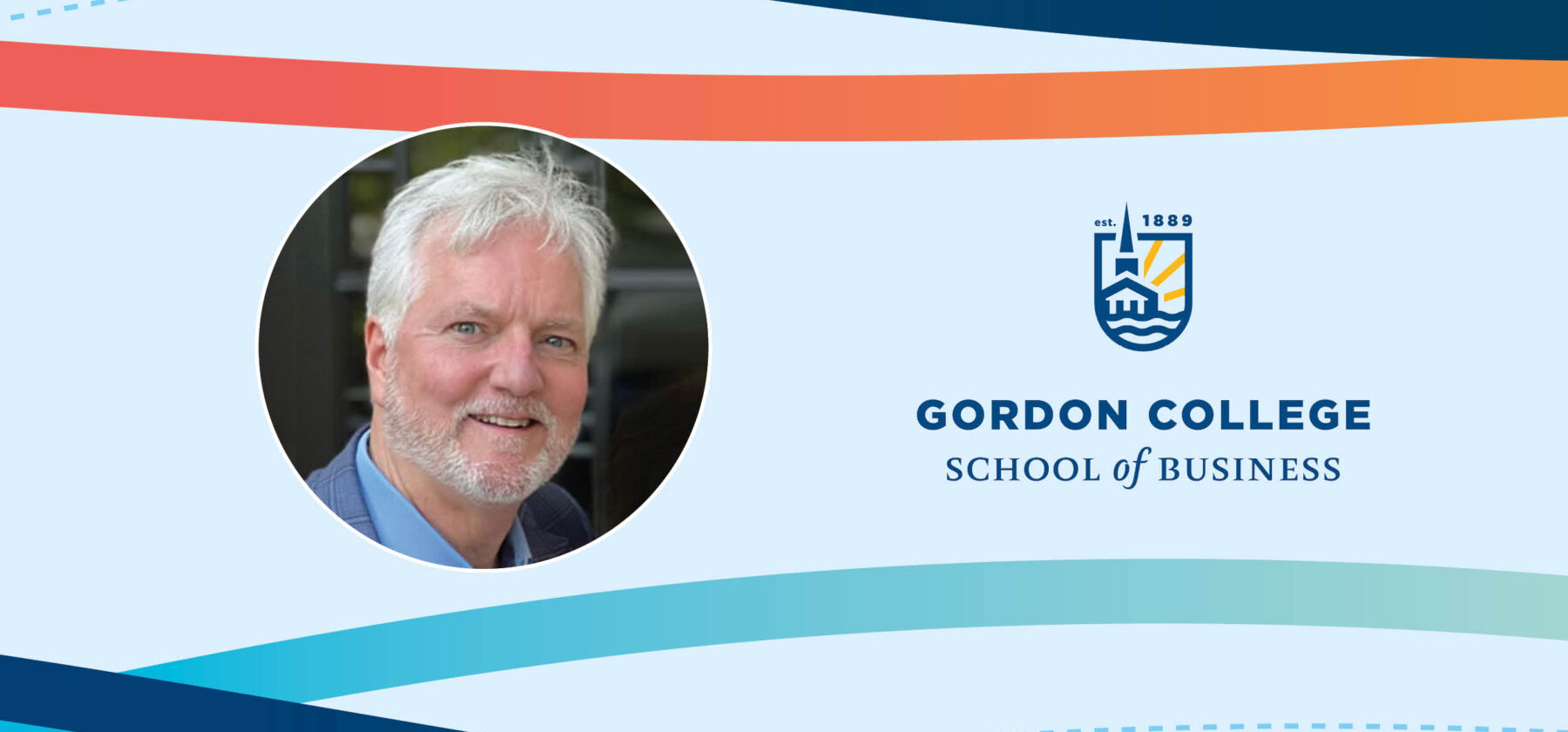Q&A with Steve Nelson, Inaugural Dean of the School of Business
A version of this article originally appeared in the fall 2024 issue of STILLPOINT magazine.
Get to know the helm of the new School of Business, who came to Gordon following a lengthy tenure at Harvard Business School, most recently serving as senior director of external relations and executive director of the MBA Program.
STILLPOINT: You have an undergraduate degree in chemistry. What set you on the path to a Harvard MBA?
STEVE NELSON: Well, it certainly wasn’t a direct path from one point to the other. I tend to think of my educational journey more like walking on stepping stones across a creek. I enjoyed the liberal arts aspect of my undergraduate education so much so that I also considered concentrating in English, history, education and math along the way. Business school didn’t actually come on to my screen until I was a year out of college. My boss and mentor encouraged me to pursue an MBA, suggesting that business school would provide me with a set of skills in leadership and management that would be helpful as I pursued a career in higher education.
SP: What were a few of the highlights of your tenure at Harvard?
SN: A couple highlights come to mind: First would be watching our community come together on September 11, 2001. It was such a terrible and unthinkable day in history, but it proved to be one of Harvard Business School’s finest moments in terms of the faculty, staff and student response and their outpouring of love, goodwill and compassion. The MBA students planned and led an interfaith memorial service that afternoon of 9/11/01. I still remember the president of the Christian Fellowship (CF) singing “Amazing Grace” on her acoustic guitar, and CF students making themselves available in the school’s chapel to pray with and comfort their fellow classmates. The second highlight that comes to mind is leading the Social Enterprise Initiative in its early, formative years. I was able to witness what previously had been a small but committed group of MBA faculty and students interested in nonprofit management, which was pretty much at the periphery at the time, grow in scope and scale to its current iteration of the Social Enterprise Initiative, which is now at the very heart of the school’s mission to educate leaders who make a difference in the world.
SP: What eventually brought you to Gordon?
SN: I have long been a fan and friend of Gordon College. It’s a top-notch college committed to its Christian mission and to excellence in academics, athletics, music and the arts, and spiritual formation. Gordon is a vibrant place for engaging students, faculty and staff, and it’s situated on a beautiful campus ideally suited for living and learning. I have great admiration for the Gordon alumni and students I’ve known over the years, and I am excited to be joining the Gordon community in helping build, launch and lead the new Gordon School of Business.
SP: What are some of the most pressing issues that businesses currently face, and how are we preparing students for that?
SN: Businesses face a myriad of complex challenges, including managing in an increasingly global economy, tackling skyrocketing costs of health care delivery and access, being at the ready against cybersecurity threats, and addressing emerging ethical considerations relating to artificial intelligence, biotechnology, genetics and the internet—to name a few. It’s in this context that our Gordon business students will learn to develop a mindset of redemptive innovation and imagination needed to help address the challenges facing the world and society today.
SP: How can business positively impact society, especially amid the challenges and complexities of our day?
SN: Business and social enterprise have the potential and power to add tremendous value, perspective and fresh insight into addressing some of the most challenging domestic and global problems. In the past, there was a tendency for businesses to leave these challenges to governmental and nonprofit organizations to handle on their own. Now, we are seeing an increasing number of public/private partnerships coming together have a greater reach and impact than they could have achieved on their own.
SP: What’s on the horizon for the School of Business?
SN: I envision the scope of the Gordon School of Business as spanning across an arc of activity that starts with our admissions and enrollment strategy and ranges to our academic course offerings, experiential learning, student clubs, full-time career and internship opportunities for students, all the way to lifelong learning and engagement opportunities for our alumni.
SP: What’s your great hope for the School of Business and its students?
SN: My great hope is that the Gordon School of Business will attract, equip and send forth our students as a new generation of courageous, humble, principled and faith-filled leaders of business, who will have meaningful impact on their local communities and throughout the world.
 The Bell
The Bell